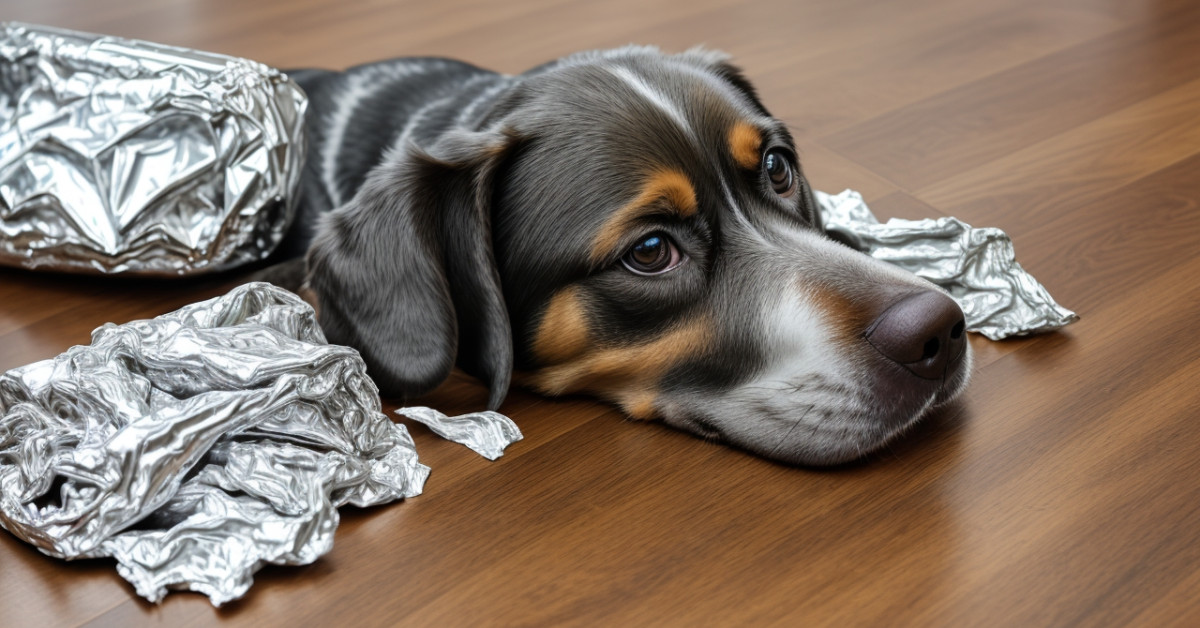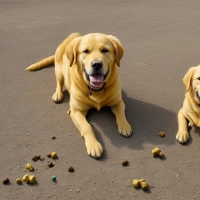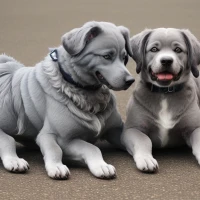My Dog Ate Aluminum Foil! Our Vet Explains Immediate Steps – A pang of panic surged through you as you noticed the remnants of aluminum foil scattered around a sheepish pup. What now? This emergency guide crafted by our expert vet will walk you through every crucial step you need to take, ensuring your furry friend stays safe and sound. Don’t wait—every second counts when your curious canine gets into mischief! Dive in to discover lifesaving advice and tips that can make all the difference.
My Dog Ate Aluminum Foil—What Should I Do?
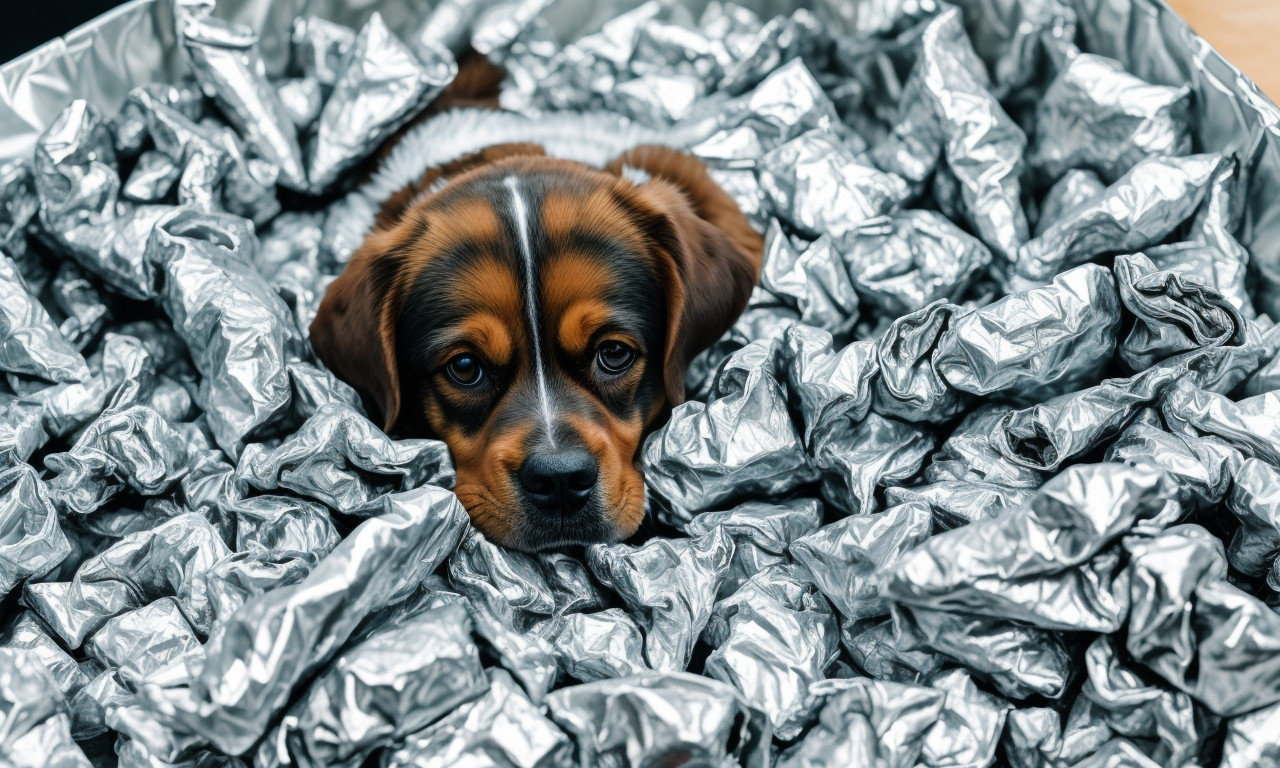
When you realize your furry companion has ingested aluminum foil, it can be a cause for concern. My Dog Ate Aluminum Foil—What Should I Do? First, stay calm but act quickly. Check for any immediate signs of distress such as choking, vomiting, or excessive drooling. If these symptoms are present, seek emergency veterinary care right away.
Next, try to determine the amount and type of aluminum foil consumed. If it was used to wrap food, the residue might also cause gastrointestinal irritation or obstruction. Contact your veterinarian and provide them with detailed information, so they can assess whether an office visit is needed. In many cases, they might recommend close observation at home to monitor for any changes in behavior, appetite, or bowel movements.
Inducing vomiting is not always safe, so avoid giving any home remedies without professional advice. Activated charcoal is another treatment option, but its administration should be guided by a vet.
In summary, knowing the steps to take when pondering My Dog Ate Aluminum Foil—What Should I Do? could make a critical difference. Timely intervention and veterinary guidance are key in ensuring your pet remains healthy and safe. Always keep hazardous items out of reach to prevent such incidents.
What Is Aluminum Foil?
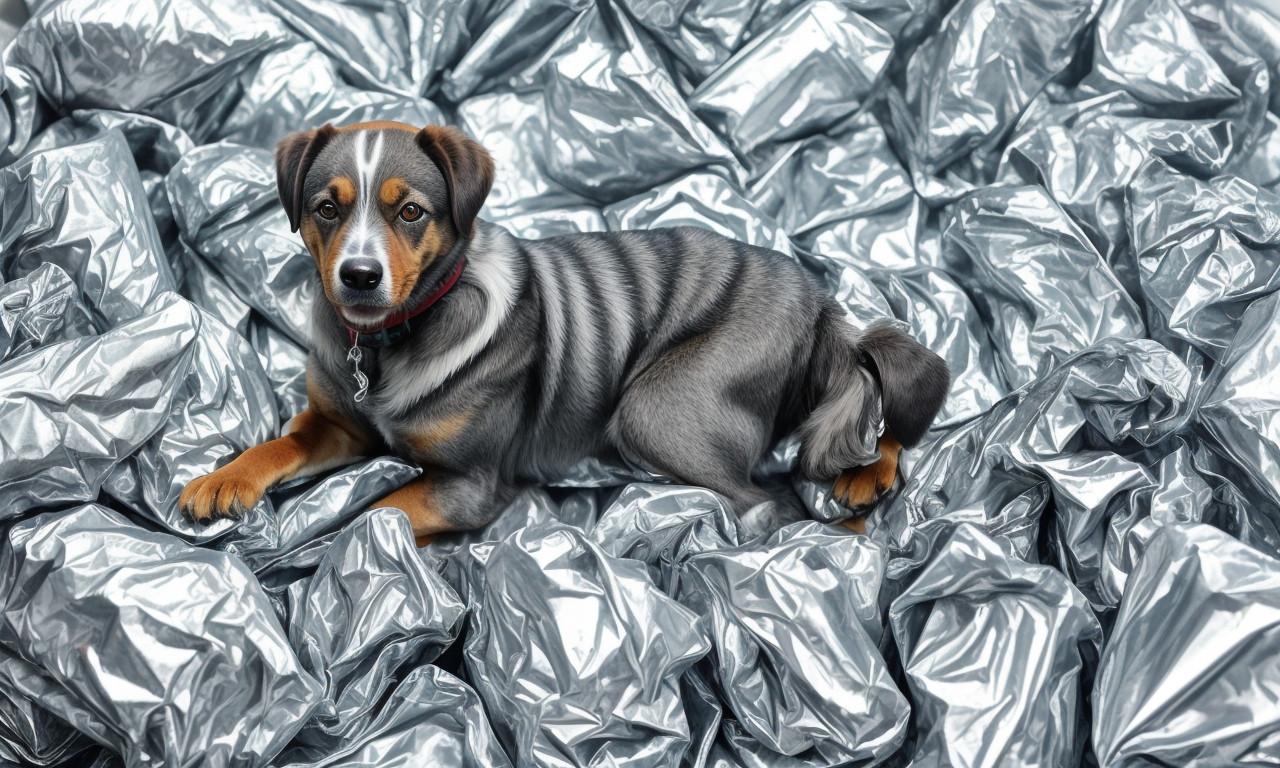
When you discover that your dog has ingested aluminum foil, immediate action is crucial. Aluminum foil, commonly known from household kitchens, is a thin, flexible metal sheet used to wrap food. If swallowed by pets, it can potentially cause severe health issues ranging from digestive obstructions to toxic reactions.
Firstly, understand what aluminum foil is. This kitchen staple is made of flattened aluminum metal and poses a danger mainly due to its indigestible nature. If a piece of foil is large enough, it could block your dog’s intestines, leading to serious complications that might require surgical intervention.
As soon as you realize your dog has consumed aluminum foil, avoid inducing vomiting unless directed by a vet. Contact your veterinarian immediately, providing them with all the important details, such as the size and quantity of the foil ingested. Typically, the vet might ask you to monitor your dog’s behavior for any signs of distress, including vomiting, lethargy, or abdominal pain.
In some cases, the aluminum foil will pass through your dog’s system naturally, but professional guidance is essential to ensure your pet’s health and safety. Quick, informed actions can prevent minor issues from escalating into emergencies. Always consult your vet for the best course of action to keep your furry friend safe.
What Happens if Your Dog Eats Aluminum Foil?
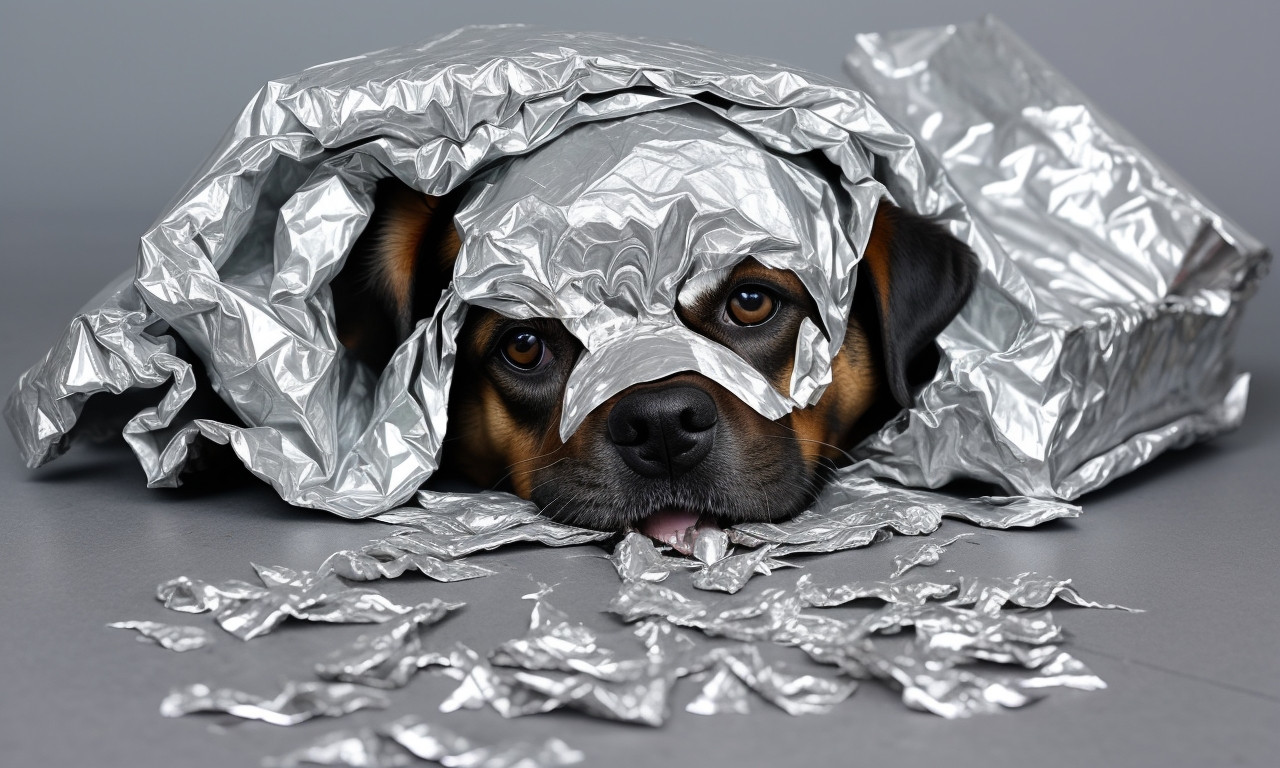
Discovering that your dog ate aluminum foil can be alarming, and immediate steps are critical to ensure their safety. When your pet consumes this material, it poses a risk of both gastrointestinal blockage and toxicity. So, what happens if your dog eats aluminum foil? Initially, you might observe symptoms like vomiting, diarrhea, or lethargy. These are signs that something could be wrong, necessitating swift action.
Firstly, assess how much foil was ingested and monitor your dog closely for any adverse reactions. If the quantity is small, they might pass it naturally; nevertheless, vigilance is essential. For larger amounts or more severe symptoms such as persistent vomiting, abdominal pain, or trouble defecating, promptly contact your veterinarian. These could indicate a serious blockage or potential internal injury.
Your vet may recommend bringing your dog in for an examination, which could involve x-rays to determine the foil’s location and any potential damage. Treatment may vary from monitored observation to surgical intervention, depending on the severity of the situation. Remember, timely intervention can make all the difference in ensuring your dog’s health and well-being. So, always keep an eye on what your pet gets into to prevent such scenarios in the future.
1. If Your Dog Ate a Lot of Foil
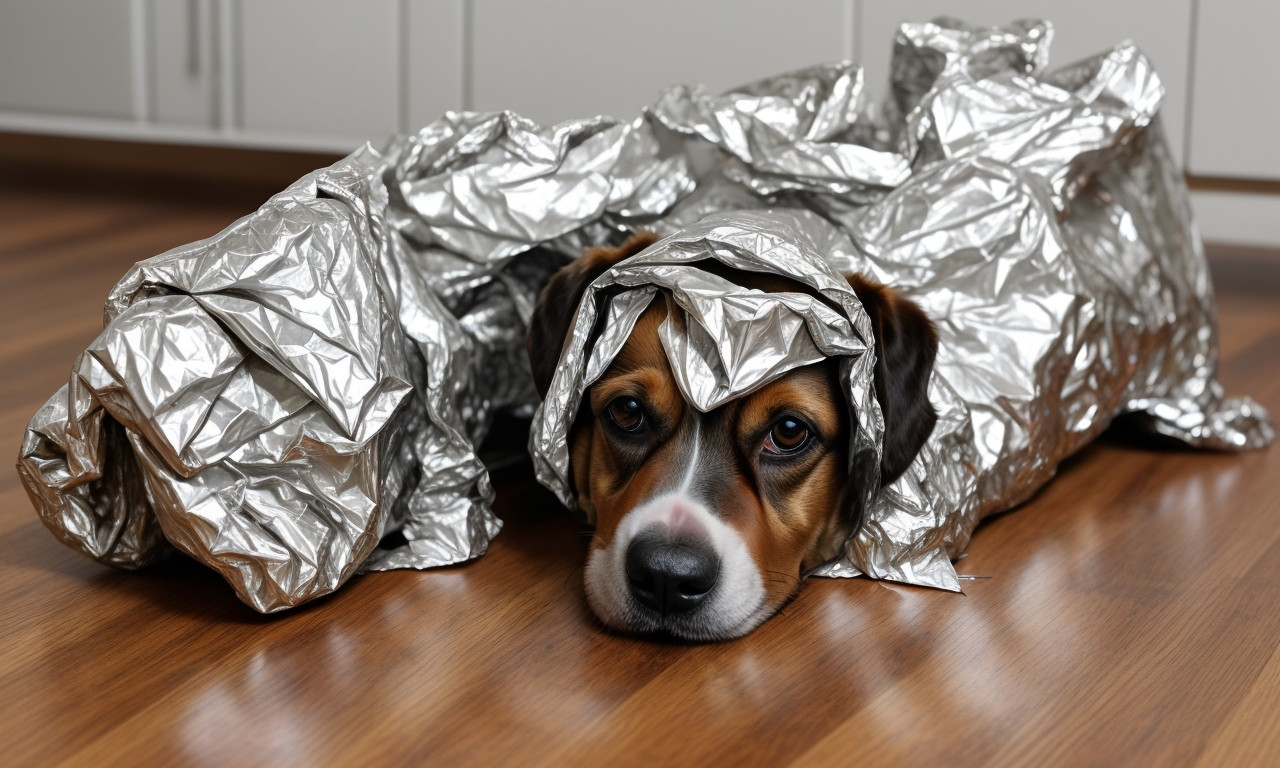
When faced with the alarming situation “My Dog Ate Aluminum Foil! Our Vet Explains Immediate Steps,” it’s important to know exactly how to respond. Dogs are naturally curious and sometimes they ingest items that are hazardous to their health. Aluminum foil can cause obstructions in their digestive system and potentially lead to severe complications if not addressed promptly.
If your dog ate foil, the first step is to assess the amount ingested. If your dog ate a lot of foil, it may cause a blockage or perforation in their intestines. Immediate action is crucial. Contact your vet as soon as possible to discuss the situation. They may ask you to monitor your dog for symptoms like vomiting, loss of appetite, lethargy, and abdominal pain. If such symptoms arise, an emergency vet visit is essential.
In the vet clinic, they may perform X-rays or other diagnostic tests to determine whether the foil has passed through the gastrointestinal tract or requires surgical intervention. It’s important to follow the vet’s instructions closely and keep a close eye on your dog during this period. Always store hazardous materials like aluminum foil out of your pet’s reach to prevent such emergencies in the future.
2. If There Was Anything Toxic Wrapped Inside the Foil
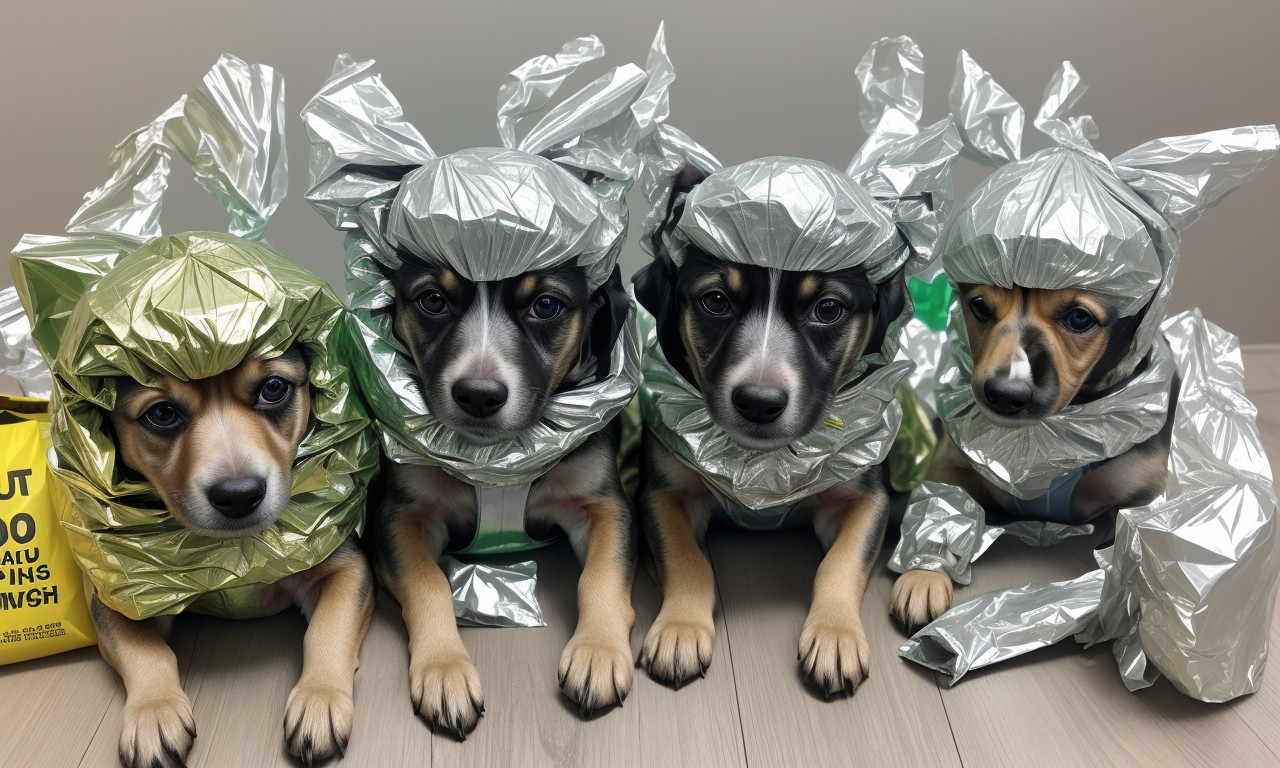
Discovering that your dog has ingested aluminum foil can be alarming. The first thing our vet recommends is not to panic. Check if there was anything toxic wrapped inside the foil, such as chocolate or onions, as these can be harmful to dogs. The foil itself can cause blockages in their digestive system or potentially lead to more serious complications, like a perforated bowel.
If you find evidence of toxic substances, contact your vet immediately. Be ready to provide details, including the type and quantity of the toxic item. For non-toxic cases, observe your dog closely for any signs of distress, like vomiting, lethargy, or difficulty passing stools over the next 24-48 hours. Small amounts of foil may pass through their system naturally, but larger pieces could cause obstruction.
During this period, you can also encourage your dog to drink more water, which may help move the foil through their system. However, it’s crucial to consult your vet for tailored advice. They may suggest bringing your dog in for an X-ray to determine the extent of the issue. Timely veterinary guidance is the cornerstone of ensuring your dog’s well-being in situations like these.
3. If Your Dog Regularly Eats Foil
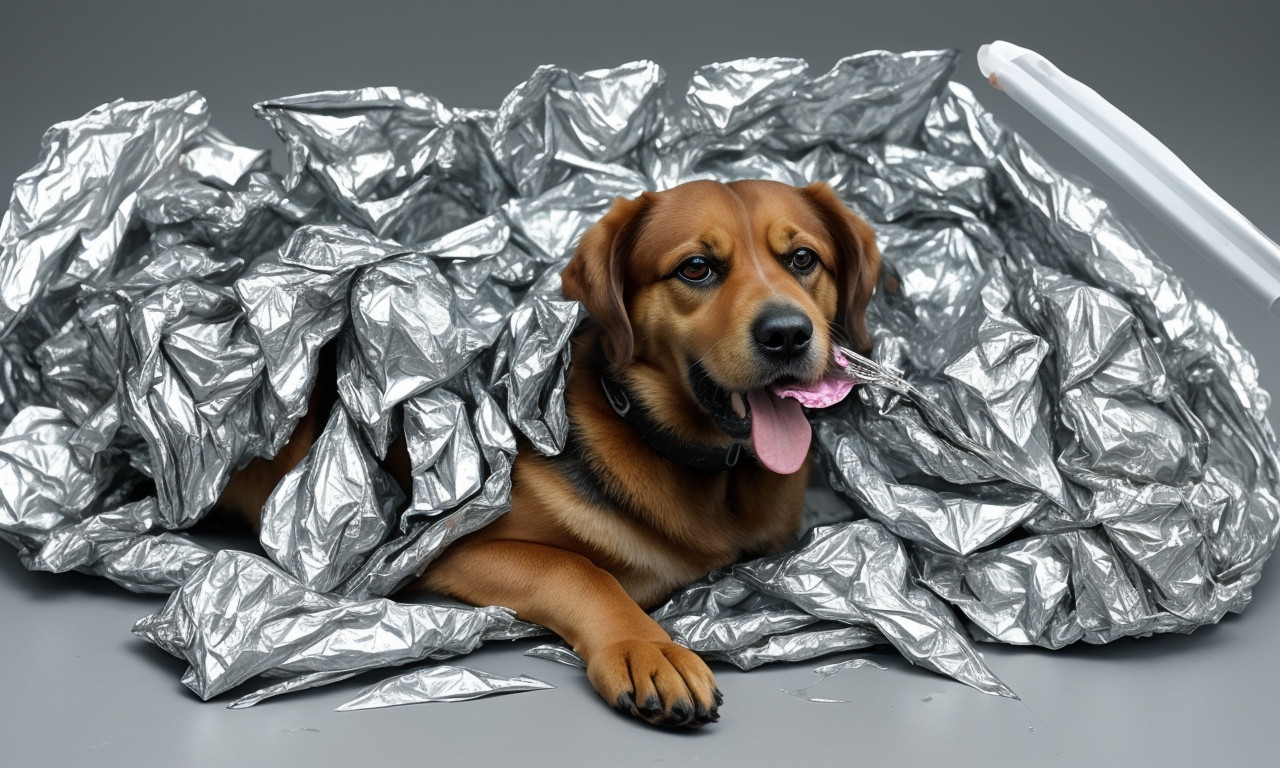
When realizing ‘My Dog Ate Aluminum Foil! Our Vet Explains Immediate Steps,’ prompt action is crucial. First, stay calm and assess if your dog is showing any distress. If your dog regularly eats foil, it’s vital to break this habit due to potential health risks. Monitor your dog for symptoms such as vomiting, lack of appetite, lethargy, or abdominal pain. These signals could indicate a blockage or internal injury. Contact your vet immediately for professional advice.
Your veterinarian may suggest a physical examination or imaging tests to determine if the foil has caused any blockages or potential internal injury. They might also administer treatments to help your dog pass the foil more comfortably. Preventative measures include keeping foil out of your dog’s reach and providing them with safe toys or chew items to divert their attention. To avoid repetitive occurrences, deter your dog from counter-surfing or scavenging by consistently offering engaging and nutritious alternatives. If your dog regularly eats foil or other non-food items, it may indicate underlying behavioral or dietary issues that need addressing with a professional’s help. Understanding potential hazards and being proactive can safeguard your pet’s well-being in the future. Prioritizing safety and health ensures a happy, foil-free life for your canine companion.
Conclusion

My dog ate aluminum foil! Our vet explains immediate steps to handle this urgent situation. Initially, it’s crucial to stay calm and assess the type and quantity of foil consumed. Smaller pieces may pass through your pet without causing harm; however, larger pieces could create blockages or other serious issues. Observing your dog for signs of distress, such as vomiting, lethargy, or a lack of appetite, is essential.
Contacting your veterinarian promptly for professional advice is the next vital step. They may suggest bringing your pet in for an examination or providing recommendations based on the symptoms. Do not attempt to induce vomiting without veterinary guidance, as this could exacerbate the problem.
Prevention is always better than cure, so ensuring that hazardous materials like aluminum foil are kept out of your dog’s reach can prevent future incidents. In conclusion, knowing these immediate steps can significantly impact your dog’s health positively and potentially save their life. Quick actions and consultation with your vet will ensure the best outcome for your beloved pet in such unforeseen circumstances.
